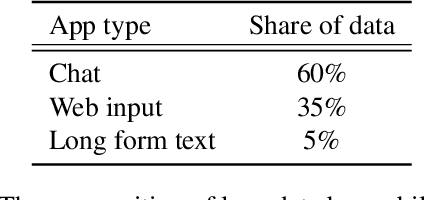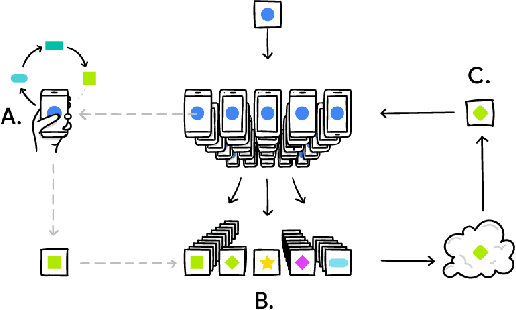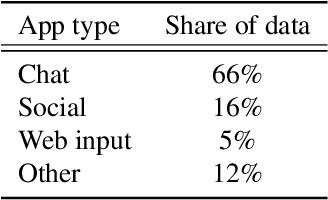Chloé Kiddon
Federated Evaluation of On-device Personalization
Oct 22, 2019



Abstract:Federated learning is a distributed, on-device computation framework that enables training global models without exporting sensitive user data to servers. In this work, we describe methods to extend the federation framework to evaluate strategies for personalization of global models. We present tools to analyze the effects of personalization and evaluate conditions under which personalization yields desirable models. We report on our experiments personalizing a language model for a virtual keyboard for smartphones with a population of tens of millions of users. We show that a significant fraction of users benefit from personalization.
Federated Learning for Mobile Keyboard Prediction
Nov 08, 2018



Abstract:We train a recurrent neural network language model using a distributed, on-device learning framework called federated learning for the purpose of next-word prediction in a virtual keyboard for smartphones. Server-based training using stochastic gradient descent is compared with training on client devices using the Federated Averaging algorithm. The federated algorithm, which enables training on a higher-quality dataset for this use case, is shown to achieve better prediction recall. This work demonstrates the feasibility and benefit of training language models on client devices without exporting sensitive user data to servers. The federated learning environment gives users greater control over their data and simplifies the task of incorporating privacy by default with distributed training and aggregation across a population of client devices.
 Add to Chrome
Add to Chrome Add to Firefox
Add to Firefox Add to Edge
Add to Edge